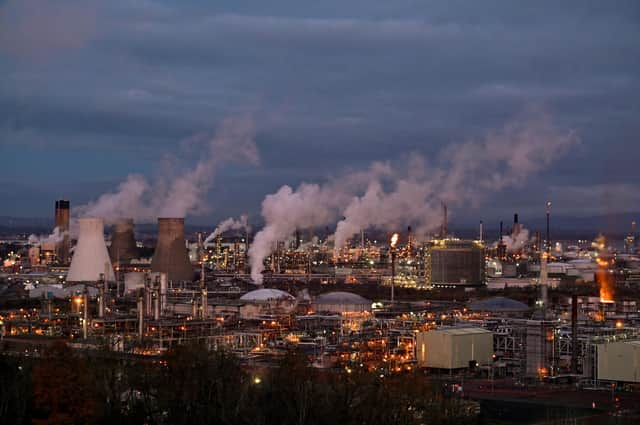Grangemouth oil refinery must be saved to avoid disaster for Scotland's economy – Kenny MacAskill


Debate on the potential, if not likely, closure of the Grangemouth refinery has been muted or sanguine at best. Of course, it’s not yet confirmed but the risk is great, and the consequences would be huge. At its heart is whether Scotland wishes to develop its industrial base, even one transitioning from carbon, or be left akin to developing-nation status. Accordingly, you’d have thought there would be greater interest and indeed public clamour.
For if it closes, Scotland will be an oil-producing nation without refinery capacity. No other country in the world’s top 25 oil producers, and Scotland sits along with the UK at number 21, is devoid of such a core aspect of oil production. Norway, for example, has two refineries. Oil-producing nations without refinery capacity are the likes of the Republic of Congo at 31st or Trinidad and Tobago at 50th and both produce significantly less oil than Scotland.
Advertisement
Hide AdAdvertisement
Hide AdOur raw product will be taken from us, with the refined product sold back to us at a premium to be paid by both nation and citizens. “Added value” they call it, but it’s us who’ll have to pay it, even though the resource come from off our shores. Yet that will be Scotland’s fate if the Grangemouth refinery closes. Supplying 70 per cent of Scottish filling stations and aviation fuel for Scottish airports, it’s vital for our economy and essential for our modern society too. Energy security’s threatened along with the job losses at the site and in the industries which cluster around it. They will be considerable, and the reverberations will span the country.
Scotland was told in the referendum that its oil was all but gone and it would even be a millstone to an independent nation. Now, miraculously it’s been rediscovered and is to be at the heart of the UK’s economic revival. The resources from existing fields are to be maxed out and new ones like Rosebank developed. How can it then be that not one drop will be refined in Scotland?
There’s an existing absurdity in that the product of the Forties Field isn’t refined here either, even though the pipeline lands at Cruden Bay and heads to Grangemouth. That needs to change. As does the absurdity of the oil and gas from the Rosebank field, to be developed by the Norwegian state energy company, being shipped to be refined elsewhere. That’s simply adding insult to injury.
There’s an absurdity as well as significant environmental damage given the extent of the carbon footprint of the maritime sector. Big ships spew out fumes and their transition to batteries or other fuels is a long way off.
Sunak’s right that there’s logic in using our own remaining oil supplies as we seek to transition to a fossil-free future. It can’t be done overnight, and plastics, never mind fuel, are needed to allow that change to happen. But shipping it around the globe for refining undermines that.
Long term, the Grangemouth refinery must look to biofuels and a commitment to that, not closure, is what’s required. In the interim, Scotland’s oil must be refined in Scotland’s refinery. It’s about time the Forties Field’s oil was refined where it’s piped to and that must apply to other fields.
Kenny MacAskill is Alba MP for East Lothian
Comments
Want to join the conversation? Please or to comment on this article.
